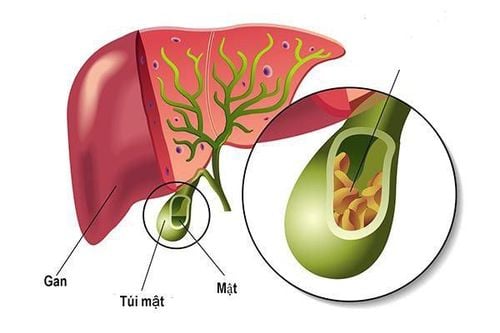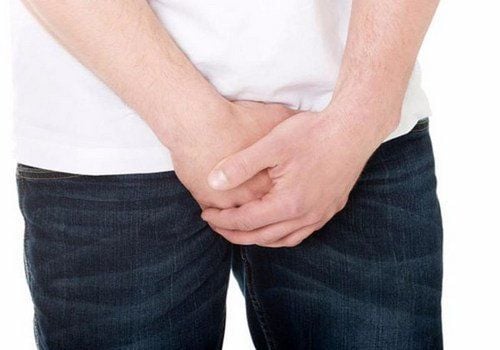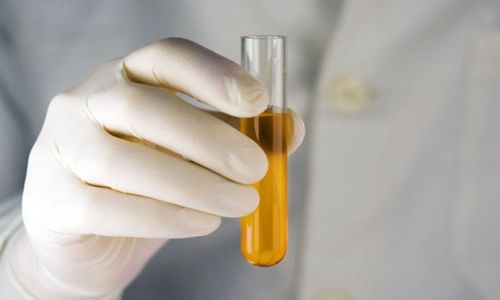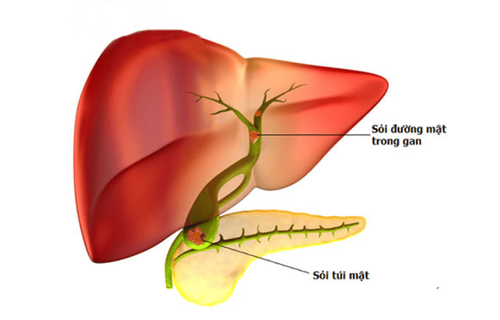The article is professionally reviewed by Nguyen Thi Ngoc MSc, MD - General Internal Medicine - Endocrinology - Department of Examination & Internal Medicine, Vinmec Central Park International General Hospital.
Normal urine is clear, colorless, or yellow. Changes in urine color or dark-colored urine can result from various physiological and pathological causes or the use of some medications.
1. What is dark-colored urine?
Normal urine normally has a pale yellow to deep amber color, due to urochrome and the dilution or concentration of the urine. Various pigments and compounds present in certain foods and medications can also alter the color of urine.
Urine that is pink or red may be due to kidney problems or urinary tract infections causing hematuria. Dark brown or tea-colored urine could be a sign of liver disease. Abnormal changes in urine color are all dangerous health signs. Unusual urine color can be a sign of a medical condition. If the urine’s color is dark red or brown, it is a characteristic of porphyria, a rare genetic disorder of red blood cells.
2. Causes of dark-colored urine
There are many causes that can make urine become dark in color:
- Alkaptonuria: This is a rare genetic disease caused by the accumulation of homogentisic acid in the body. The body is unable to convert tyrosine (an amino acid) into its derivatives, ultimately leading to alkaptonuria, which causes dark urine because the body lacks an important enzyme.
- Anemia: There are many different causes of anemia. Specifically, in the case of hemolytic anemia, the cause is the breakdown of red blood cells. This can lead to a change in urine color to red or dark, with traces of blood in the urine samples.
- Porphyria: A rare genetic blood disorder that causes a defect in the synthesis of hemoglobin. Symptoms of this condition often include: abdominal pain, light sensitivity, seizures, and mental disorders.
- Urinary Tract Infections: Urinary tract infections can cause urine to change to abnormal color, often making it appear darker. Urinary tract infections are caused by bacterial or fungal infections and are more common in women than men.
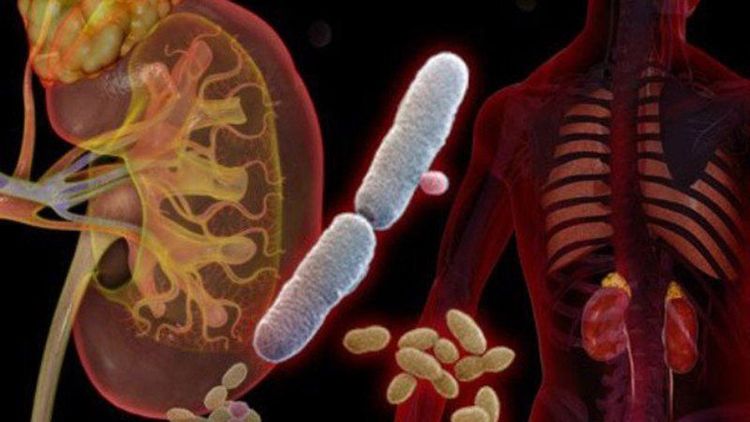
- Liver Disease: If the urine is dark and the skin or eyes appear yellow, it may be a sign of liver diseases such as viral hepatitis, alcoholic hepatitis, cirrhosis, etc. Cirrhosis is a liver and bile condition where scar tissue begins to take over healthy liver tissue, causing the liver to stop functioning properly.
- Dehydration: When the body is well-hydrated, the urine is light yellow or even clear to nearly colorless. The more dehydrated the body is, the darker the urine will become. Signs of severe dehydration include fatigue, dizziness, or even blurred vision.
- Gallstones: Gallstones are often formed from cholesterol in the gallbladder. Along with dark urine, you may also experience abdominal pain, fever, itchy skin, and jaundice.
- Bile Duct Obstruction: The bile ducts carry bile into the intestines to aid digestion. If these ducts become blocked, your urine will not only appear darker but you will also experience digestive issues.
- Excessive Heat: This is caused by excessive heat exposure (hot weather), such as prolonged sun exposure or being in an overly hot environment, which can speed up the body's dehydration process, leading to dark urine or other conditions such as fainting.
- Chlamydia Infection: Chlamydia is a sexually transmitted disease that requires immediate treatment to prevent further complications, including dark urine.
- Bladder Stones: Bladder stones can cause damage to the bladder or even lead to urinary tract obstruction, which can result in dark urine.
- Acute Pancreatitis: Acute pancreatitis causes pain and swelling in the upper left side of the abdomen, along with nausea, bloating, and dark urine.
- Food-Related Causes: Certain foods can alter the color of urine after consumption. The addition of colorants like anthocyanins and curcumin in daily foods may also contribute to dark urine.
- Medication-Related Causes: Some chemicals found in common medications can contribute to dark urine. These include iodine, anti-malarial drugs, phenol poisoning, and methocarbamol. Some vitamin supplements can also lead to dark urine.
- Dark Urine in the Morning: The most common cause is dehydration. While sleeping, the body does not receive fluids, which can make urine more concentrated. As a result, the first urination in the morning may appear darker and gradually return to normal after drinking fluids throughout the day.
- Dark Urine During Pregnancy: During pregnancy, dark urine may also result from dehydration, especially since pregnant women require more fluids than non-pregnant women. Dehydration can also be a sign of morning sickness and frequent vomiting, which are common symptoms during pregnancy.

3. Treatment for Dark-Colored Urine
As the causes have been mentioned above, dark urine is a warning sign of many serious health issues. Therefore, when you notice dark urine, you can take the following steps:
- Review the types of food you've recently consumed, the medications you're taking for treatment, and whether you drink enough water regularly. Daily food, dehydration, and the medications you're using are the three common causes of dark urine, and these are issues you can resolve relatively easily on your own.
- Treatment for dark urine symptoms depends on the cause. All causes have specific treatments that a specialist doctor will indicate and explain to you.
To prevent dark urine, you can follow these recommendations:
- Drink enough water.
- A healthy lifestyle and preventing other causes can help improve the condition of dark urine.
- Maintain a good diet, exercise regularly, and reduce alcohol consumption.
You should see a doctor immediately if you experience some following conditions:
- You should see a doctor immediately if you notice blood in your urine, as this could be a sign of cancer or urinary stones.
- If you are drinking enough water but your urine remains dark in color, you should also consult a doctor.
- If you experience pain or jaundice along with dark urine, you must see a doctor immediately.
To arrange an appointment, please call HOTLINE or make your reservation directly HERE. You may also download the MyVinmec app to schedule appointments faster and manage your reservations more conveniently.

